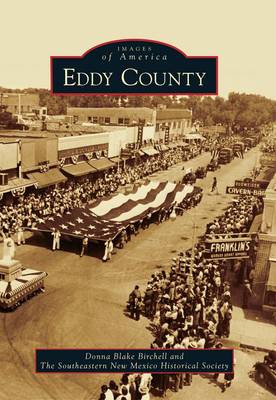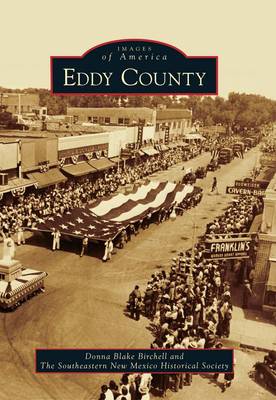
- Afhalen na 1 uur in een winkel met voorraad
- Gratis thuislevering in België vanaf € 30
- Ruim aanbod met 7 miljoen producten
- Afhalen na 1 uur in een winkel met voorraad
- Gratis thuislevering in België vanaf € 30
- Ruim aanbod met 7 miljoen producten
Zoeken
€ 34,95
+ 69 punten
Uitvoering
Omschrijving
Eddy County's 4,198 square miles were carved from the massive land holdings of Lincoln County, then the largest county in the United States, on February 25, 1889. Early Spanish explorers and Native Americans had used the seemingly endless water supply of the Pecos River, which bisects the county, as a trail to the north. Seven Rivers, the first settlement in the Pecos Valley, battled the newly formed town of Eddy for the honor of remaining county seat. Eddy won by a vote of 331 for and 83 against. Although born in lawlessness and diversity, the county flourished as the discoveries of oil, gas, and potash brought industry to support the established fertile agricultural and cattle foundations. This volume explores the early founding families and pioneers and brings to light many of the long-forgotten towns of Dayton, Lookout, Oriental, and Globe that helped form the Eddy County of today.
Specificaties
Betrokkenen
- Auteur(s):
- Uitgeverij:
Inhoud
- Aantal bladzijden:
- 128
- Taal:
- Engels
- Reeks:
Eigenschappen
- Productcode (EAN):
- 9780738579412
- Verschijningsdatum:
- 10/01/2011
- Uitvoering:
- Paperback
- Formaat:
- Trade paperback (VS)
- Afmetingen:
- 165 mm x 231 mm
- Gewicht:
- 317 g

Alleen bij Standaard Boekhandel
+ 69 punten op je klantenkaart van Standaard Boekhandel
Beoordelingen
We publiceren alleen reviews die voldoen aan de voorwaarden voor reviews. Bekijk onze voorwaarden voor reviews.







